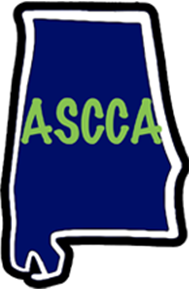Last week we introduced our new Aquatics Director Aubrie Collins. She mentioned in her bio that she discovered Camp ASCCA through Camp Seale-Harris, the camp that is with us for the next few weeks. Here’s a closer look at what she has learned through living with diabetes.
What’s your name and age and where are you from?
My name is Aubrie Collins, I’m twenty-three, and I’m from Birmingham, Alabama.
When were you diagnosed with type I diabetes and how did it affect you and your family?
I was diagnosed with type I Diabetes when I was two years old. My mom had the most trouble with it, I think, because it was hard to make a two year old eat certain things at certain times of the day. That was really vital to keeping my blood sugar regulated back then because we didn’t have all the technology and research we do now.
How did camp Seale-Harris affect you growing up?
Camp Seale-Harris actually taught me how to be really independent with my diabetes—how to check my blood sugar, how to give myself insulin, pump stuff. And I got to meet a lot of people– friends that I still have today at twenty-three, that I met when I was ten years old
What are some of the biggest challenges you have faced living with diabetes?
The biggest challenge I have faced living with diabetes was playing sports when my blood sugar was low or high. I couldn’t play up to my potential in either of those cases, and I think that was my biggest challenge. However, it did help me learn how to control my diabetes better.
Why is it important for families affected by diabetes to participate or send their kids to camp (like Seale-Harris)?
It’s really important because it’s going to teach these kids how to be independent and it’s going to help them meet friends that they will make which will help in the long run. It can be lonely if you’re the only kid at your school with diabetes, but if you have some other kids that you know, who have diabetes who you can talk to, it makes things a lot easier. And the parents need to let go, at some point, because these kids are going to have diabetes their whole lives. They have got to learn how to be independent and give their shots and check their blood sugar and manage it on their own. I think it is incredibly important.
In addition, kids can see that they can do things. They are going to camp like the rest of their friends who don’t have diabetes. I think it’s important for self-esteem, confidence, and independence.
What has living with diabetes taught you more than anything?
More than anything it has taught me self-control and how to take care of myself. Even if I didn’t have diabetes I would probably take care of myself, but not to the extent that I do today. It has also taught me how to educate others. It has helped me become self-aware and allowed me to become more comfortable talking to people with diabetes or about diabetes or about anything in general. It has taught me how to teach kids how to live with diabetes, which is probably the most important thing I’ve learned—how to work with kids.
And finally, now that you’re a part of ASCCA staff, what are you looking forward to most for this summer?
I am excited because I am full-time staff (which I’ve never been before) and I’m excited to train and teach people what I know and what I’ve learned, especially new things. And, obviously, what I’m looking forward to most is the campers. I cannot wait for ASCCA to start and to see all the campers who I have seen the past four years. I am so excited to see old campers, to meet new campers, to make new friends; I can’t wait. I’m pumped.

Located in Alabama on Lake Martin, Camp ASCCA offers campers a wide variety of traditional recreational and educational activities with a unique design for accessibility.

Sign up for our eNewsletter to keep up with events and happenings at Camp ASCCA!